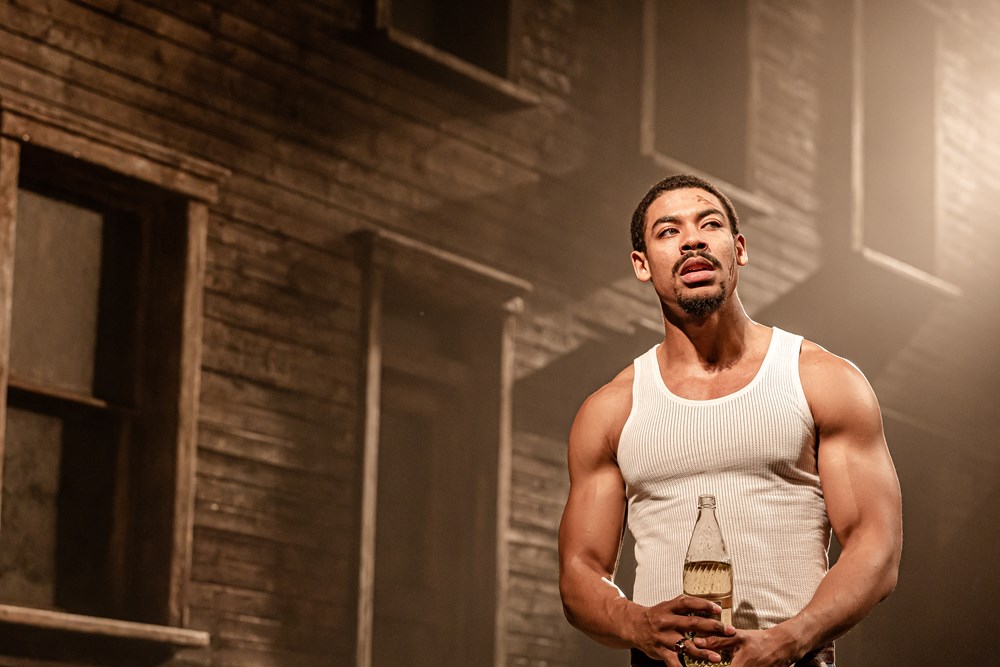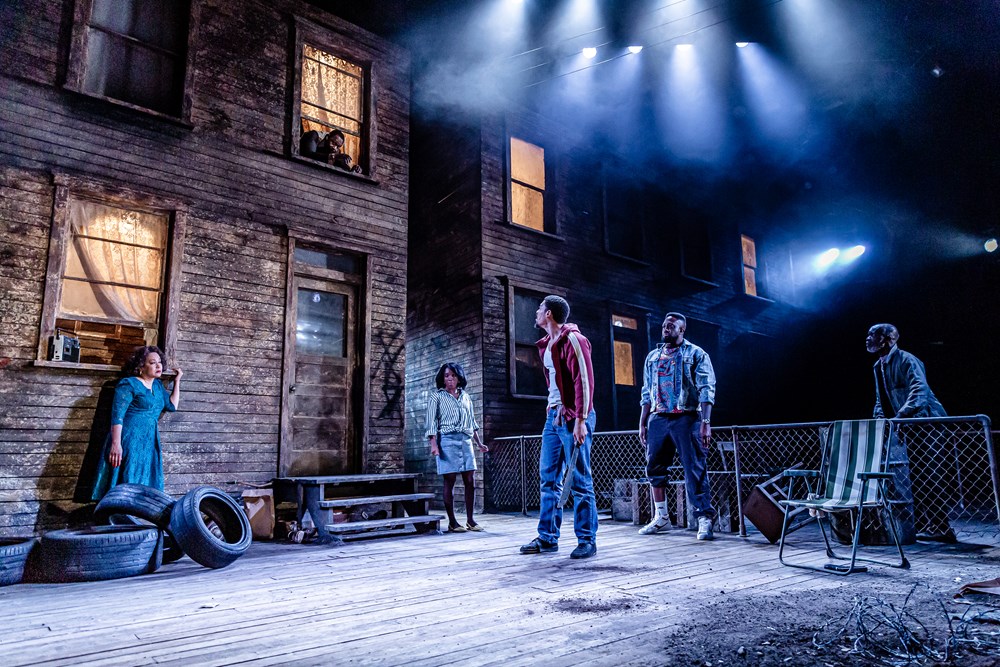
Some props haul their own metaphors on stage with them. When King (Aaron Pierre), recently released from prison, sprinkles flower seeds over an unpromising scrub of soil outside his Pittsburgh home – well, you don’t need dramaturgical skills to wonder if the severely challenged little seeds will mirror King’s own struggle to nurture a new, post-prison life.
King Hedley II, August Wilson’s 2001 play – part of his ten-part cycle about the 20th-century African-American experience – is set in the 1980s. It’s a period of verdant growth for some – the swaggering beneficiaries of the Reaganomics, cultivating serious money and harvesting profits from their Wall Street successes. Way out east in Pittsburgh, things look different – hard times, political blight, street violence. Green shoots of recovery are nowhere to be seen.
Wilson’s play walks with a heavy tread. As Hedley attempts various off-legit schemes to raise enough cash to open a video store (itself a not-undoomed enterprise when seen from our Netflix age); as he squabbles with his mother (Martina Laird), who he feels abandoned him as a child; as his wife (Cherrelle Skeete) announces she can’t bring a baby into this world shadowed by prison and grave – well, you suspect that things will end up in some kind of bad. And Chekhov’s Law lopes into action when Hedley compares guns with his best friend (Dexter Flanders) and his mother’s ex-lover (Lenny Henry) – three shooters, with another in reserve. No good will come.
If the plotting can seem over-determined, the writing is a wild, grieving whirligig all of its own. Lasting almost four hours, Nadia Fall’s production gives everyone ample time to follow their thoughts and feelings. They edge their way into fears and convictions they might never have articulated, or excavate memories in piercing detail. When a character’s long speech launches – not so much a speech as an aria, each with a heartfelt whale music of its own – you never know where the words will take them.

King doggedly nurtures his seeds – despite people scorning and trampling over them (he loops protective barbed wire across the tiny patch), despite the neighbourhood visionary (Leon Wringer) burying an actual dead cat alongside. There seems no prospect of thriving, yet he tries. Is he mistaken or as magnificent as his name? The soil lies at the front of and I ran my fingers over its dusty nubble as I passed.
The performances too have a resistless lived-in weight – a quality cast holds the text’s rhythm and gravity. Everything takes place at the front of Peter McIntosh’s single perspective set – achieved with a loving attention that the city itself doesn’t afford its residents – yet each actor holds themselves differently, so that this shallow space feels mighty with life and sorrow. Henry arrives with an easy walk and a charming smile – so to see his face shut down in anger is terrifying. Laird’s pouchy resignation is briefly relieved by the strut of her days as a singer. And Pierre moves most compellingly of all: holding his powerful arms close to his body, kinking wrist and elbow so that this man of furious muscle seems oddly fragile . Twisting like a neglected seedling to find some kind of light.
Photos by Richard Davenport/The Other Richard
Follow David on Twitter: @mrdavidjays

Leave a Reply